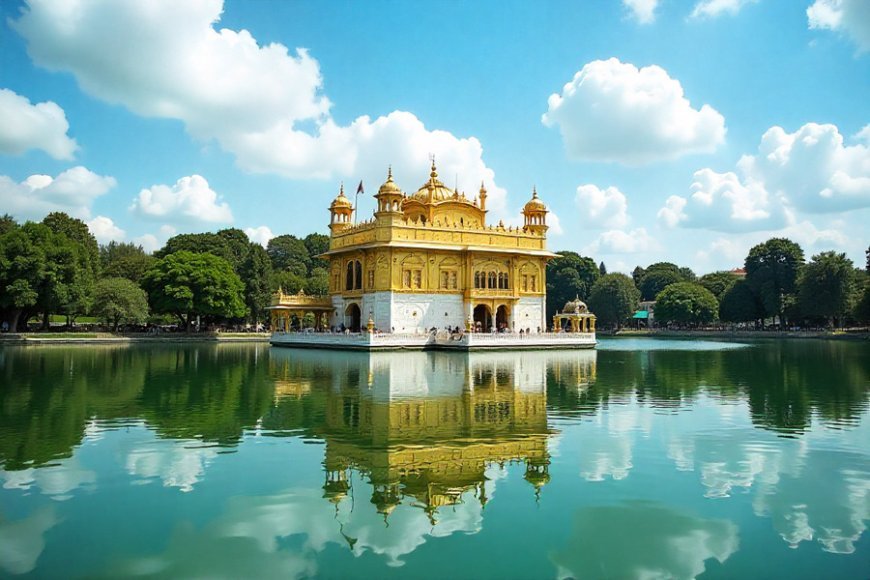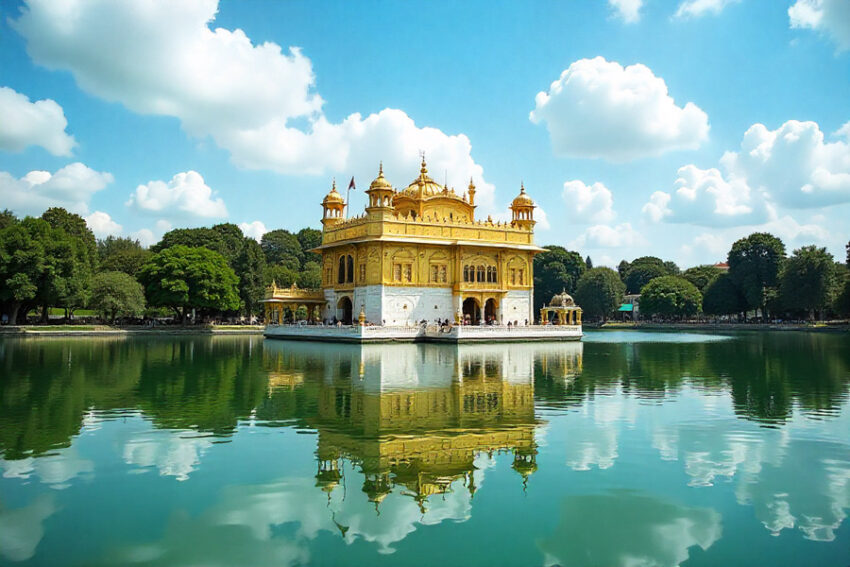Thailand, Malaysia, India, Singapore, Japan, China, South Korea, Indonesia And More Set The Benchmark For Asia’s Cultural Excellence, Driving Innovation And Economic Growth Through Soft Power


Thailand, Malaysia, India, Singapore, Japan, China, South Korea, Indonesia, and other leading Asian nations are shaping the continent’s cultural landscape, with Thailand recently crowned as Asia’s richest in cultural heritage and ranked eighth globally by US News & World Report in 2024. These countries are not only preserving their rich traditions but actively transforming their cultural wealth into powerful economic engines through strategic soft power initiatives. By fostering innovation, strengthening creative industries, and promoting cultural diplomacy, they are driving sustainable development and elevating Asia’s influence on the world stage.
On August 7, the Thailand Creative Culture Agency (THACCA), operating under the Ministry of Culture, unveiled the results of the highly anticipated 2024 “Countries with the Richest Cultural Heritage” ranking published by US News & World Report. In a significant achievement, Thailand was honored as the Asian nation with the most abundant cultural heritage, and globally, it earned an impressive eighth place among 89 countries worldwide. This prestigious ranking highlights Thailand’s enduring commitment to preserving, cultivating, and celebrating its vast cultural legacy.
Thailand’s Leading Role in Asia’s Cultural Heritage
The 2024 US News & World Report ranking further cements Thailand’s status as a cultural beacon within Asia. Thailand’s position atop the continent’s list demonstrates the country’s rich historical traditions, diverse cultural expressions, and vibrant living heritage. From its architectural wonders and spiritual traditions to festivals and artistic crafts, Thailand offers a multifaceted cultural experience deeply rooted in centuries-old wisdom and contemporary creativity.
Below are the top ten Asian countries recognized in the ranking for their cultural wealth:
- Thailand
- India
- Japan
- China
- Indonesia
- Vietnam
- Malaysia
- South Korea
- Singapore
- Philippines
This ranking not only celebrates Thailand’s unique cultural identity but also underscores the country’s vital role in shaping and enriching Asia’s cultural landscape.
The Economic Power of Thai Cultural Soft Power
Thailand’s distinction as Asia’s richest country in cultural heritage is more than a symbol of pride—it represents a profound economic opportunity with far-reaching potential. The government recognizes that the nation’s cultural assets, when effectively harnessed, can drive significant economic growth and provide sustainable benefits for local communities across the country.
To capitalize on this potential, Thailand is actively advancing a national soft power strategy that seeks to maximize the value of its cultural wealth through systematic development, promotion, and innovation in the creative cultural industries. The soft power approach views culture not only as a national identity marker but also as a strategic resource for economic development, tourism enhancement, and international influence.
Strategic Pillars of Thailand’s Cultural Development
The government’s soft power policy, primarily implemented through agencies such as THACCA and coordinated under the National Soft Power Development Committee, revolves around three key pillars aimed at unleashing Thailand’s full cultural potential.
1. Cultivating Cultural Talent Through Education and Training
At the heart of Thailand’s cultural soft power is the conviction that its people possess distinctive cultural talents and wisdom accumulated over generations. The government is committed to fostering these talents by investing in comprehensive training and skill development programs.
The “One Family, One Soft Power” (OFOS) initiative exemplifies this approach by promoting lifelong learning and cultural skill enhancement. This program focuses on upskilling and reskilling individuals to merge traditional cultural elements with cutting-edge innovation and technology. By doing so, Thailand aims to nurture a new generation of cultural practitioners who can creatively reinterpret heritage through contemporary lenses, thus keeping cultural expressions dynamic and relevant.
This human resource development strategy not only preserves Thailand’s cultural knowledge but also empowers its people to contribute actively to the creative economy, thereby adding value to the nation’s socioeconomic fabric.
2. Building a Thriving Creative Cultural Industry Ecosystem
Thailand boasts vibrant cultural industries encompassing traditional arts, crafts, performing arts, design, media, and more. Despite their strength, these sectors have historically faced limitations that have prevented them from reaching their full potential on the global stage.
To address this, the government is working to modernize and strengthen the creative cultural industry ecosystem. This involves revising outdated laws, introducing new regulatory frameworks, and fostering supportive policies that encourage innovation, entrepreneurship, and competitiveness.
Special attention is given to 14 targeted creative cultural industries, where focused development can produce the greatest impact. By creating an enabling environment, Thailand aims to eliminate barriers such as restrictive legislation, lack of infrastructure, and limited access to markets.
Strengthening these industries not only enhances their global appeal but also ensures that Thai culture remains a vibrant and influential force in the global creative economy.
3. Promoting Thai Culture Globally Through Creative Cultural Diplomacy
Another vital component of Thailand’s soft power strategy is leveraging culture as a diplomatic tool to build international relations and expand global networks.
Creative Cultural Diplomacy initiatives aim to showcase Thailand’s cultural richness to the world, fostering mutual understanding and collaboration. Through cultural exchange programs, international exhibitions, festivals, and export of cultural products and services, Thailand projects a modern and engaging image grounded in its deep cultural heritage.
This global outreach strategy is designed to attract tourism, foreign investment, and cultural partnerships, enhancing Thailand’s presence on the world stage. By connecting cultural heritage with contemporary innovation, the country hopes to inspire admiration and interest worldwide.
The Broader Impact: Economic Growth and Community Empowerment
Thailand’s strategic emphasis on cultural soft power is expected to generate multiple benefits. By elevating its cultural profile and strengthening creative industries, Thailand aims to increase international tourism, boost exports of cultural goods, and create new job opportunities in related sectors.
This cultural-economic synergy will not only produce financial gains but also support sustainable community development. Cultural tourism, in particular, encourages investment in local infrastructure and services while preserving cultural sites and traditions.
Furthermore, as Thailand shares its culture globally, it fosters a sense of pride and identity among its citizens, reinforcing social cohesion and national unity.
Thailand’s recognition as the richest country in cultural heritage in Asia and eighth in the world by US News & World Report is a testament to the nation’s profound cultural wealth and ongoing dedication to cultural preservation and innovation. With a forward-looking soft power strategy focused on talent development, industry enhancement, and global diplomacy, Thailand is poised to transform its cultural heritage into a powerful driver of economic prosperity and international influence.
Thailand, Malaysia, India, Singapore, Japan, China, South Korea, Indonesia, and others lead Asia in cultural heritage wealth, leveraging their rich traditions and soft power to drive economic growth and global influence.
This holistic approach will not only attract global attention and admiration but also promote inclusive growth that uplifts communities nationwide, ensuring that Thailand’s rich cultural legacy continues to thrive for generations to come.
The post Thailand, Malaysia, India, Singapore, Japan, China, South Korea, Indonesia And More Set The Benchmark For Asia’s Cultural Excellence, Driving Innovation And Economic Growth Through Soft Power appeared first on Travel And Tour World.






